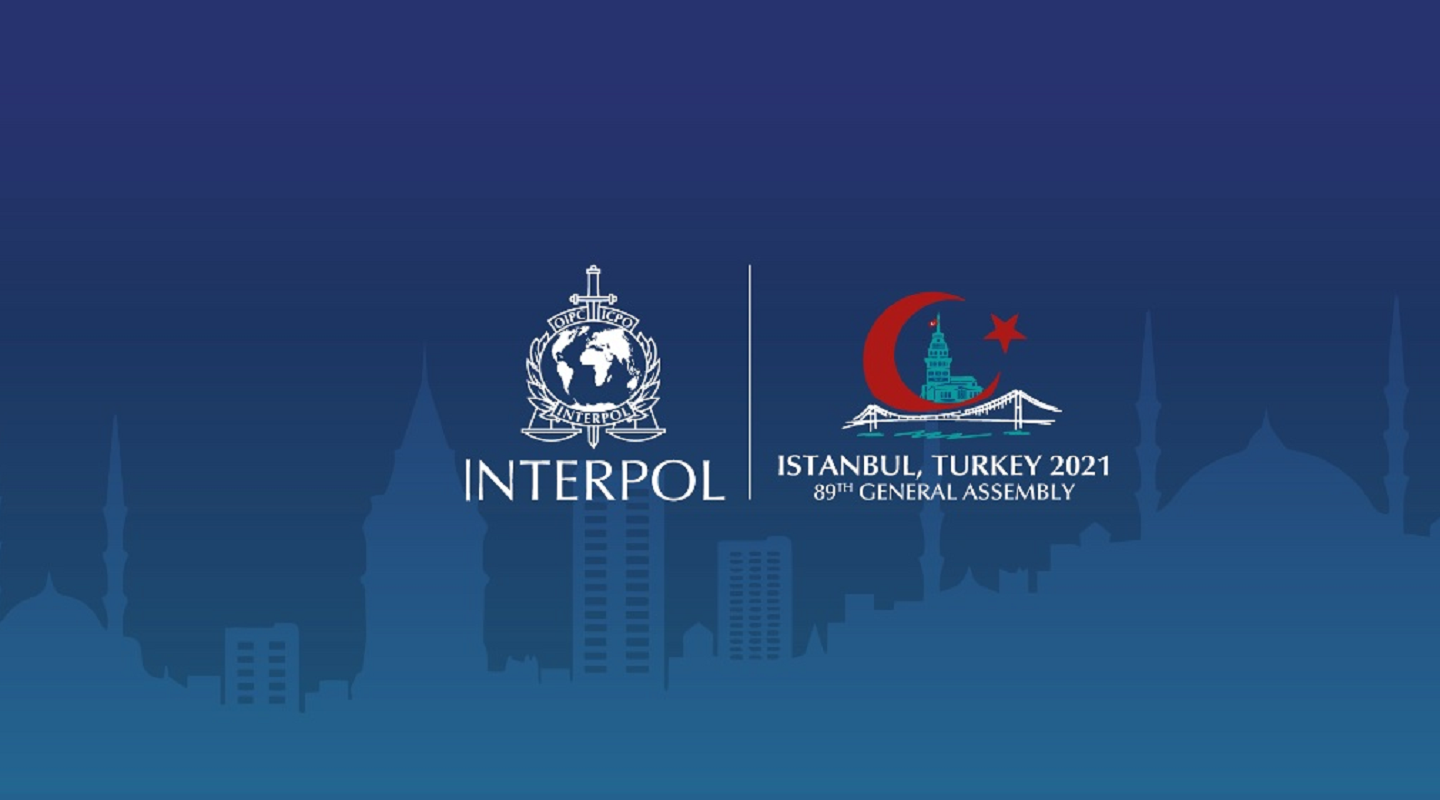
Holding Its General Assembly in Turkey Could Imperil INTERPOL’s Legitimacy November 21, 2021
The International Criminal Police
Organization (INTERPOL) General Assembly convenes on November 23-25, 2021, in
Istanbul, Turkey. It will be one of the most historic meetings for the body, as the
majority (12 out of 13) of its Executive Committee members, all of its appellate
body members, and the organization’s president will be elected. Several risks
and challenges await INTERPOL’s new governing body.
Being the largest global police organization
with 194 member countries, INTERPOL has a vital role in connecting police organizations
to fight international crime worldwide. The primary functions of INTERPOL include
issuing Red Notices and diffusion communications among member police organizations.
On average, INTERPOL issues more than 10,000 Red Notices and more than 100,000
wanted-person alerts every year.
While INTERPOL’s involvement is necessary for
law enforcement at the international level, the organization has been
susceptible to political abuse by autocratic governments. According to the recent
report from the Heritage Foundation, countries known to be
human-rights abusers and intolerant of political criticism have misused INTERPOL
to track down political dissidents in other countries and persecute them in
their homeland. Moreover, the unlawful use of INTERPOL leads to detrimental
consequences for the suspects who are not prosecuted in a fair trial. Any
person named in a Red Notice, for example, could be subject to arrest and
imprisonment, cancellation of a visa, deportation, being barred from accessing
financial systems, and a tarnished reputation for being accused—most likely in
public—of being an international criminal.
Unfortunately, some member states, including Russia, Turkey, China, and Venezuela, have
weaponized INTERPOL and targeted thousands of
political refugees with Red Notices. In the last decade, the number of
requests from these autocratic countries for INTERPOL to arrest and extradite
political opponents has risen significantly. In 2020
alone, INTERPOL issued 11,094 Red
Notices, a large portion of which came from these autocratic
regimes.
Article 3 of the INTERPOL Constitution states: “It is strictly forbidden for the Organization to undertake any
intervention or activities of a political, military, religious or racial
character.” These autocratic countries have been violating INTERPOL’s rules and
misusing the organization, which is supposed to focus on non-political crimes,
such as drug trafficking and violent offenses.
According to the 2021
Freedom House report on
transnational repression, Turkey has rendered
political dissidents from at least 31 different countries, where the Turkish
government has persuaded the host governments to hand over its perceived
enemies—without due process. Most of the targeted individuals are Gulenists and
Kurdish and leftist activists. The report highlights Turkey’s recent misuse of INTERPOL
by noting that “no other perpetrator state was found to have conducted
such a large number of renditions, from so many countries, during the coverage
period.”
Being one of the top jailers of journalists, Turkey has
investigated, arrested, or imprisoned more than 220,000 civilians for terrorism
charges since 2016. The Turkish governments’ use of INTERPOL for transnational
persecution of political opponents increased exponentially after the July 2016 abortive
coup. Amnesty International reports
that “the judiciary disregarded fair trial guarantees and due
process and continued to apply broadly defined anti-terrorism laws to punish
acts protected under international human rights law.” According to Turkish officials,
116 people from 27 countries had been brought to Turkey to face “terrorism”
charges for their alleged connection with the abortive coup. Freedom House
has
identified 55 people from 17 countries who had been rendered and
sent to Turkey after being charged with alleged terrorism. These reports,
however, are not exhaustive and underreport the numbers, as some of the
renditions have been clandestine operations.
In addition, the AKP
government has abused INTERPOL’s Stolen and Lost Travel Documents
Database by sending thousands of official requests for the organization to
invalidate passports and restrain the travel rights of the government’s
political opponents. These individuals were taken by surprise, completely unaware
that their passports had been revoked.
Some European
Union leaders, such as German Chancellor Angela Merkel and
international organizations, like the Organization for Security and
Co-operation in Europe, have condemned Turkey for misusing the organization’s
mechanisms and urged INTERPOL to be cautious when reviewing Turkey’s
requests for assistance. Turkey’s Deputy
Foreign Minister, however, contends that “the [INTERPOL] general assembly in
Istanbul will be an important opportunity.” The Turkish government strives to leverage its position
in INTERPOL as a host country to further its practice of transnational
repression.
It should be noted that while INTERPOL has no
policing authority to arrest or prosecute suspects, the organization’s power
comes from its coordination capacity and its perceived legitimacy. It is
imperative that INTERPOL remains a legitimate and effective transnational
crime-fighting organization. INTERPOL’s legitimacy can be sustained only if the
organization builds and maintains safeguards against abusive practices by its
member states and prioritizes human rights and the rule of law.
While the
authoritarian regimes might see the INTERPOL General Assembly as an opportunity
to steer the organization in a repressive direction, democratic countries
should take advantage of the meeting and create awareness against the misuse of
INTERPOL.
The measures listed
in the Transnational Repression
Accountability and Prevention Act, a bipartisan bill in the U.S Congress, could provide
guiding principles for other countries to prevent the abuse of INTERPOL. As a
preventive measure, governments should be extra cautious about implementing Red
Notice requests. The General Assembly could create an independent working group
to investigate the recent abuses of Red Notices and other diffusion mechanisms.
INTERPOL is one of the most important intergovernmental cooperation platforms for law enforcement worldwide; however, bringing safeguards to prevent abusive practices would strengthen the organization’s integrity, credibility, and legitimacy.
_____________________________________________________
Orion Policy Institute (OPI) is an independent, non-profit, tax-exempt think tank focusing on a broad range of issues at the local, national, and global levels. OPI does not take institutional policy positions. Accordingly, all views, positions, and conclusions represented herein should be understood to be solely those of the author(s) and do not necessarily reflect the views of OPI.
